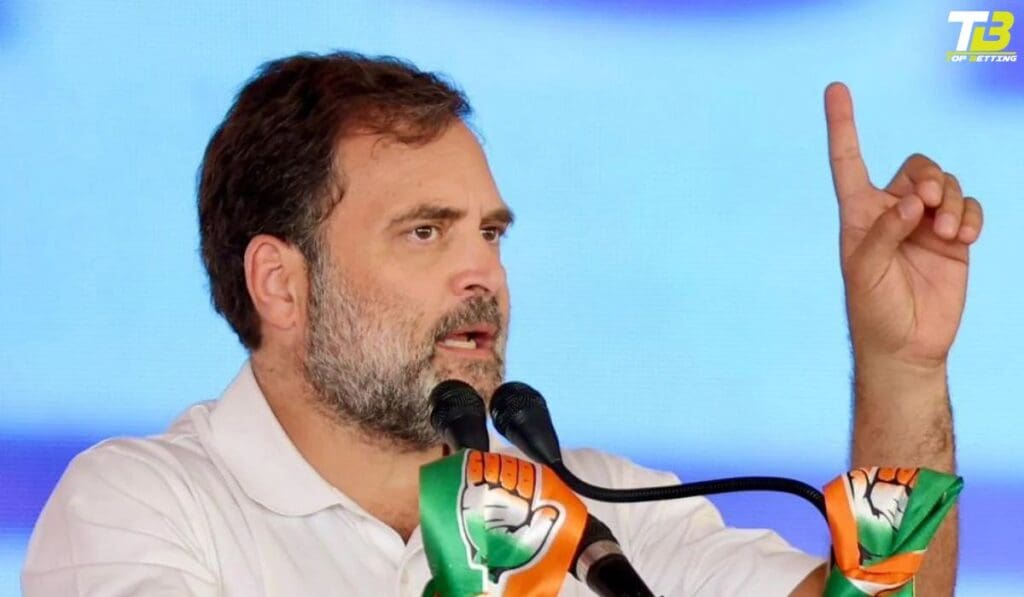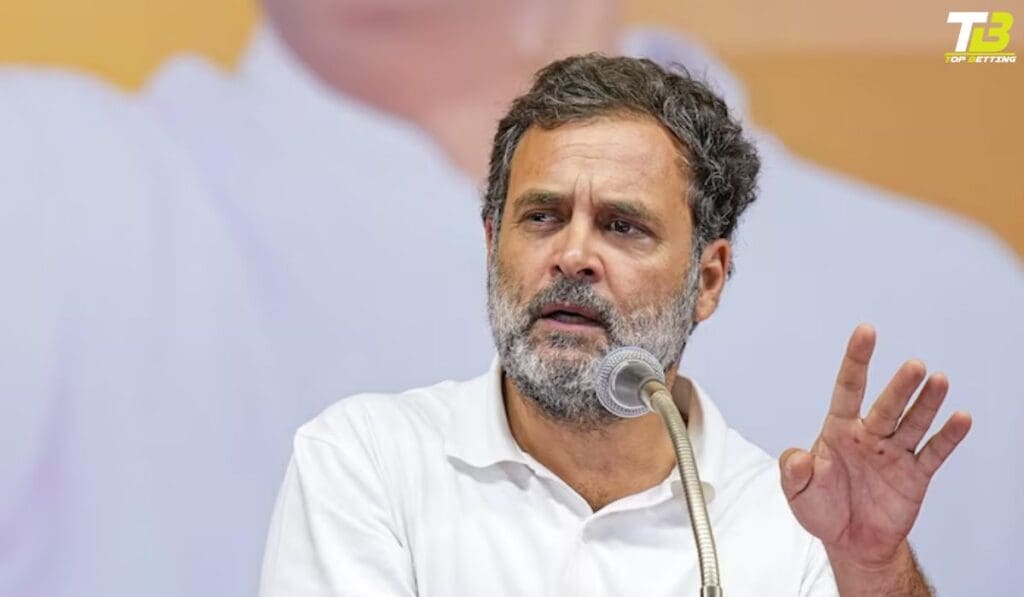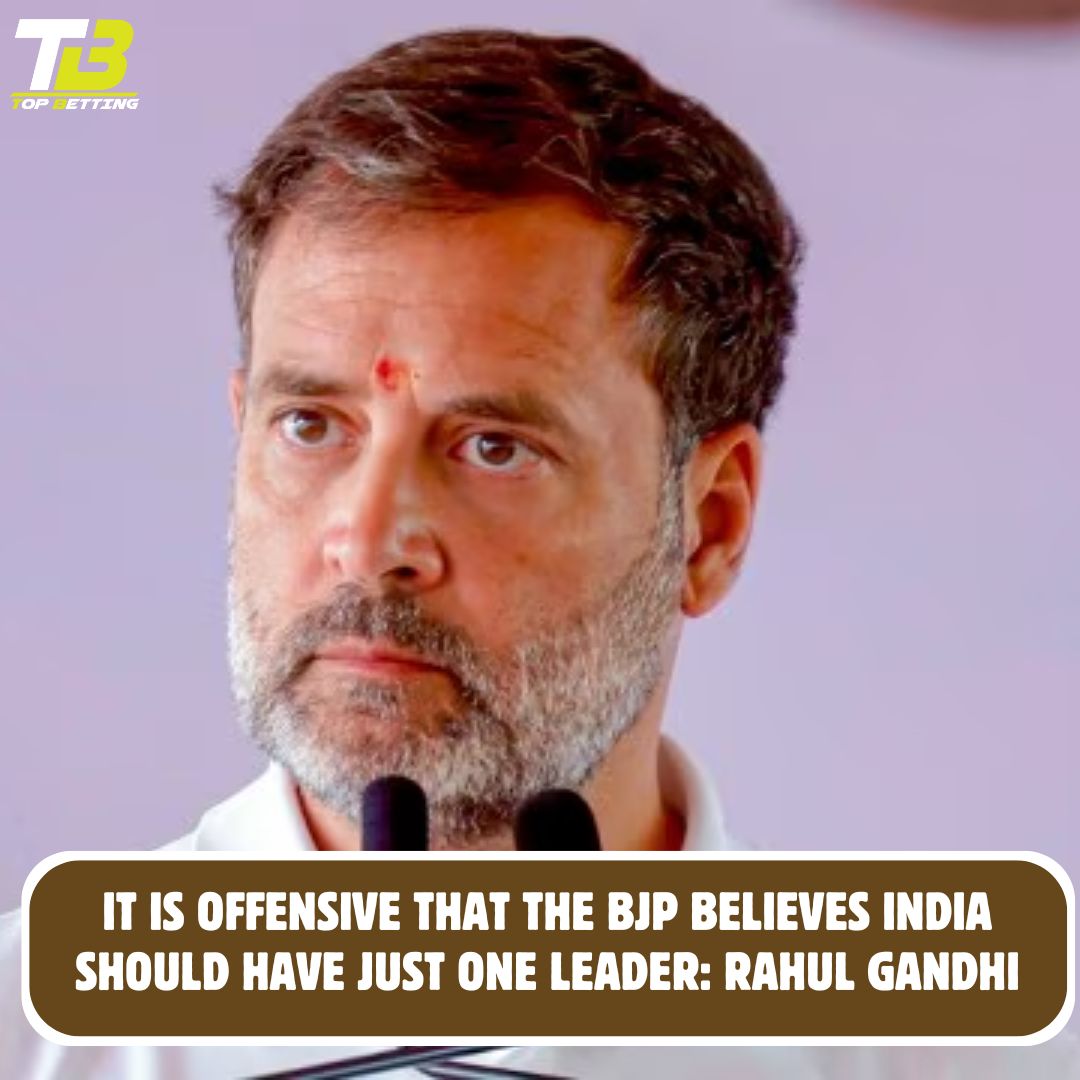
It is offensive that the BJP Have One Leader | Rahul Gandhi
Introduction
The concept of governance and leadership has always been a topic of discussion and debate in India. Recently, senior Congress leader Rahul Gandhi accused the ruling Bharatiya Janata Party (BJP) of imposing the idea that India should have only one leader, deeming it an insult to the people of the nation. In this article, we will delve into the details of Gandhi’s statement and explore the implications of this ideology.
The Essence of India’s Diversity
India is often described as a vibrant bouquet of diverse cultures, languages, religions, and beliefs. Each element contributes to the beauty and uniqueness of the nation as a whole. Rahul Gandhi emphasized this aspect, stating that every individual, irrespective of their background, deserves respect and recognition. He argued that the idea of having only one leader undermines the essence of India’s diversity and fails to acknowledge the contributions of various communities.
The Congress vs. BJP Approach
Gandhi highlighted the fundamental difference between the ideologies of the Congress and the BJP. According to him, while the Congress aims to listen to the people and embrace their beliefs, language, religion, and culture, the BJP seeks to impose a singular perspective from the top. Gandhi’s statement reflects the Congress party’s commitment to inclusivity and representation, where multiple leaders emerge from different regions, backgrounds, and ideologies.
Freedom from Colonial Rule
Drawing parallels to India’s struggle for independence, Gandhi expressed his discontent with the idea of being colonized by the ideology of the Rashtriya Swayamsevak Sangh (RSS), the ideological parent organization of the BJP. He emphasized that the freedom fighters who fought for India’s independence envisioned a nation ruled collectively by its people, not by a single dominant force. Gandhi’s words resonate with those who believe in the principles of democracy and equal representation.
The Importance of Multiple Leaders
Gandhi questioned why India cannot have more leaders who represent the diverse aspirations and ideologies of its citizens. He argued that a multiplicity of leaders would ensure a truly representative government that caters to the needs and aspirations of all sections of society. Gandhi’s stance on this issue underlines the significance of decentralization of power and the importance of allowing different voices to be heard and respected.
Gandhi’s Stand on Imposed Leadership
Rahul Gandhi firmly asserted that the BJP’s idea of having only one leader is insulting to every young Indian. This statement reflects his belief in the power of democracy and the right of every individual to have a say in shaping their own future. Gandhi’s opposition to the imposition of leadership from the top down highlights the Congress party’s commitment to participatory governance and its belief in the strength of collective decision-making.
Gandhi’s Electoral Campaign in Wayanad
Gandhi made these remarks during his election campaign in Wayanad, a high-range constituency in Kerala. He addressed party workers and voters after a massive road show, using the platform to express his views on leadership and governance. Wayanad holds significance for Gandhi as it is the constituency from which he contested and won with a record margin during the 2019 Lok Sabha polls.
The Difference in Leadership Philosophies
The contrasting leadership philosophies of the Congress and the BJP have been a subject of debate throughout India. While the Congress emphasizes the importance of collective leadership and representation, the BJP often rallies around a single leader. This difference in approach is reflected in their respective party structures and decision-making processes. Gandhi’s criticism of the BJP’s ideology stems from this fundamental difference in leadership philosophy.

The Implications of Imposed Leadership
Imposing a singular leader can have far-reaching consequences for a nation as diverse as India. It may lead to the marginalization of certain communities, stifling of dissenting voices, and the neglect of regional aspirations. The concept of one leader may inhibit the growth of alternative leadership and hinder the development of a robust democratic system. Gandhi’s statement highlights the potential dangers of concentrating power in the hands of a few.
Public Reaction and Debates
Gandhi’s remarks have sparked a series of debates and discussions on the nature of leadership and governance in India. Supporters of his viewpoint argue that a diverse country like India requires multiple leaders to effectively address the needs and aspirations of its citizens. Critics, on the other hand, contend that a single leader can provide stability and streamline decision-making processes. This ongoing discussion reflects the complexity of leadership in a diverse and democratic nation.

Conclusion
The assertion by Rahul Gandhi that the BJP’s idea of having only one leader is insulting to the people of India has sparked a significant debate on leadership and governance. The Congress leader’s opposition to the imposition of singular leadership emphasizes the importance of inclusivity, representation, and the recognition of diverse voices. This discussion highlights the need for a democratic approach that respects the complexities of a diverse nation like India. As the country moves forward, the question of leadership and governance will continue to shape the political landscape.










